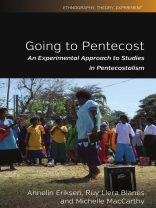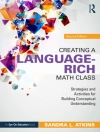Co-authored by three anthropologists with long–term expertise studying Pentecostalism in Vanuatu, Angola, and Papua New Guinea/the Trobriand Islands respectively, Going to Pentecost offers a comparative study of Pentecostalism in Africa and Melanesia, focusing on key issues as economy, urban sociality, and healing. More than an ordinary comparative book, it recognizes the changing nature of religion in the contemporary world – in particular the emergence of “non-territorial” religion (which is no longer specific to places or cultures) – and represents an experimental approach to the study of global religious movements in general and Pentecostalism in particular.
Tabela de Conteúdo
List of Figures
Acknowledgements
PART I: INTRODUCTIONS
Introduction: Going to ‘Pentecost’: Outline of an Experiment
Interlude: Locations in ‘Pentecost’
Reading Guide
PART II: PRESENTATIONS FROM ‘PENTECOST’
Chapter 1. Borders in ‘Pentecost’: Creating Protected Spaces
Chapter 2. Reconfiguring Life and Death: A New Moral Economy in ‘Pentecost’
Chapter 3. Anti-relativist Nostalgias and The Absolutist Road
PART III: THEORIES FROM ‘PENTECOST’
Chapter 4. Borders and Abjections: Approaching Individualism in ‘Pentecost’
Chapter 5. Engaging with Theories of Neoliberalism and Prosperity
Chapter 6. Ruptures and Encompassments: Towards an Absolute Truth
PART IV: COMMENTS
Chapter 7. Comparison Re-placed
Matei Candea
Chapter 8. Pentecostalism and Forms of Individualism
Joel Robbins
Chapter 9. Life at The End of Time: A Note on Comparison, ‘Pentecost’ and the Trobriands
Bjørn Enge Bertelsen
Chapter 10. Wealth versus Money in Pentecost: Why Is Money Good?
Knut Rio
Chapter 11. ‘Pentecost’ in The World
Birgit Meyer
Index
Sobre o autor
Michelle Mac Carthy is an Associate Professor at Saint Mary’s University in Halifax, Nova Scotia (Canada). She is the author of Making the Modern Primitive: Cultural Tourism in the Trobriand Islands (University of Hawaii Press, 2016).












